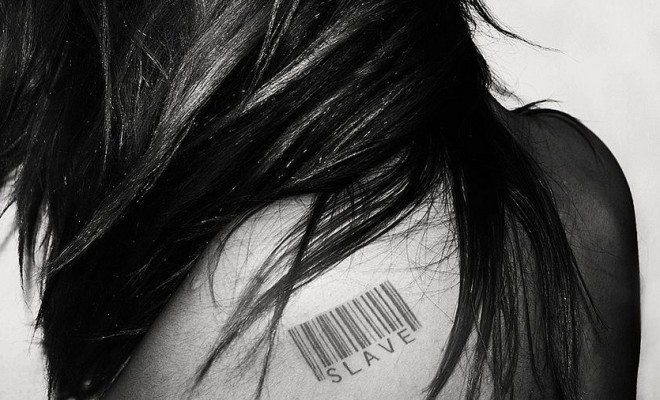 Image courtesy of [Ira Gelb via Flickr]
Image courtesy of [Ira Gelb via Flickr]
Schools
KU School of Law Students Aid Human Trafficking Victims
The human trafficking industry involves 20.9 million people and $150 billion dollars each year. One new class at the University of Kansas School of Law is looking to lower those horrifying numbers. Led by KU School of Law Clinical Associate Professor and Director of KU School of Law’s Medical-Legal Partnership Clinic Katie Cronin, KU’s Human Trafficking Law and Policy course requires law students to work on real human trafficking cases and provide resources to attorneys, police, health care workers, and victims of human trafficking.
For example, Marci Mauch, one of Cronin’s students, devised training materials to help police and hospital staff recognize patterns consistent with human trafficking victims. According to the materials, signs that someone may be a human trafficking victim include avoiding eye contact, being unaware of their location, letting somebody else speak for them, having certain illnesses such as STIs, and having injuries that do not match their stories. Cronin came up with the idea of teaching hospital staff how to identify victims after learning that human trafficking victims often end up in emergency rooms.
Other examples of projects devised by Cronin’s students include working on the visa application of a human trafficking victim–the application most likely could not have been filled out by the victim as it was hundreds of pages long and required a certain level of expertise. Other students worked on the creation of a manual for attorneys working T visa cases–a visa afforded to victims who turn their human traffickers into authorities. Yet another worked on the creation of a Know Your Rights brochure for victims served by the Willow Domestic Violence Center.
“It’s sort of shocking how many areas of the law human trafficking does impact,” Cronin said in an interview with KU News Service. “Immigration attorneys can provide services to foreign national victims, and even those law students that go into corporate work can help their corporate clients to make sure that their supply chains remain free of human trafficking.”
The University of Kansas is not the first law school to expose its students hands on to human trafficking cases. For example, Boston University School of Law’s Human Trafficking Clinic offers its students the opportunity to provide legal representation for human trafficking victims and assist attorneys in shaping public policy. Columbia Law School’s Sexuality and Gender Law Clinic regularly prepares reports on human trafficking cases, while the George Washington University Law School and the University of Southern California Gould School of Law clinics directly litigate human rights cases in court.
Still, KU School of Law is unique in its efforts to attack human trafficking at the “nexus” of medicine and law. Director of KU’s Anti-Slavery and Human Trafficking Initiative (ASHTI) Hannah Britton said to the Lawrence Journal-World:
All of these survivors need immediate legal assistance… The problem is that this is a hidden population because it’s a criminal activity… Most victims are very scared to come forward because they are fearful of arrest or deportation. They’ve been isolated, and the traffickers are very skillful at creating fear.
Cronin and her students are doing good work creating much needed avenues for victims to overcome these fears.








Comments